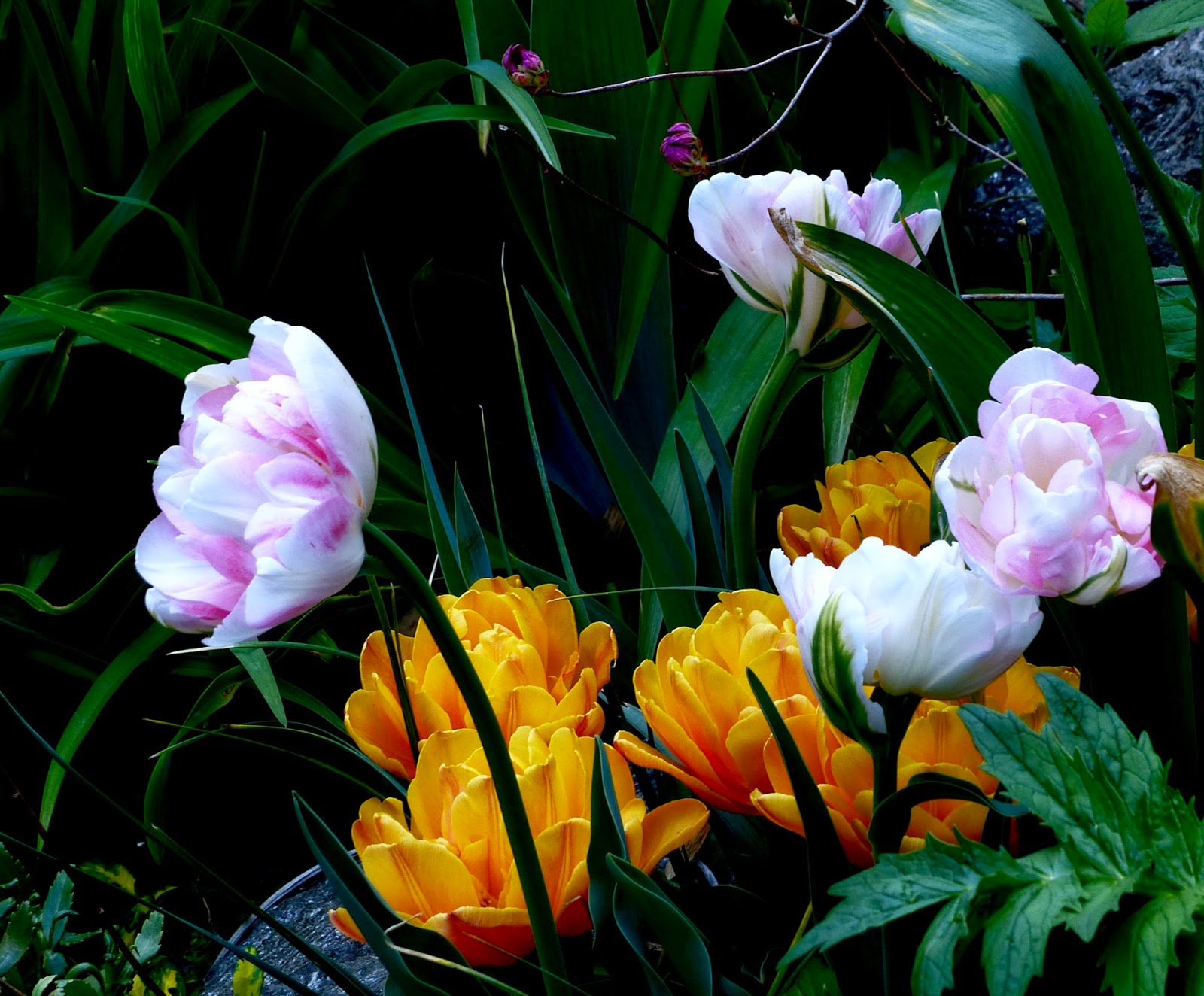Now is iris,
And the first few roses
I look forward to seeing what the arc of the roses is going to look like. In late March, when I pruned them, there was much more dead wood than usual. The poor Rugosa was mostly dead yet it is still the first bloomer. I do know that it has been a good spring for iris, which have bloomed copiously, colorfully and long.
The water table is full and the mix of rain and sun has been just right. But it is the coolness that has really let what is blooming last. I have seen the Lady Jane tulips fall apart in days due to heat. This year they set a record of three weeks in bloom.
This brisk Spring has felt glorious. But is that a fluke or because of the contrast with the hard winter, or just because we like to tell ourselves that good often comes out of what had been bad?
There is a name for this last idea in Christian Theology--the Fortunate Fall ( if Christian theology is not your cuppa, please be not displeased. I'm really talking about a human tendency to think a certain way.)
The Fortunate Fall is the concept that though humans messed up in some way, allowing evil into the world, their end state will be better than if they had never messed up. It shows up in a lot of English Literature, which is where I was first introduced to it, long before I had any use for religion.
It seems to reflect an aspect of human ratiocination, the part of us that often forgets, ignores or hides suffering by drawing attention to better things. I do this because it helps me from dwelling on the bad stuff, which I can do and which then creates more suffering. It seems to help many deal with adversity.The downside is, of course, that it can decrease our ability to see and relieve suffering.
Recently, I was talking to a coworker whose parents have had some money issues and who have moved in with her and her son. One consolation is that this allows her to do more things outside the house. She has been working out and blooming with good health. But this is only a small consolation compared to the greater difficulties at issue. Do we see the small goods that difficulties create as consolations sent by grace, karma or human love and ingenuity, or as the direct results of the difficulties?
C.S. Lewis took the first view(see Perelandra,) although many Christians assume that the idea of the Fortunate Fall is manditory. It is not.
In the garden, a milder winter might well have brought an even more splendiferous Spring. We will never know.This is the Spring we have.
Might spiritual maturity mean not indulging in to the human need to always, not just explain or understand the reality we experience, but to justify it?
This Spring is beautiful and I am enjoying it in the garden. The difficulties of last winter do not increase or decrease this. I'm even a tad inspired and writing poetry. I will be ending this post with a poem in progress. In poetry, blogs or lived life, I'm happy to celebrate what functionally and gently deepens my experience of reality. Gardening makes me pay attention to Nature's cycles, loss and delivery, effort and reward. What has been lost does not make what remains more beautiful, nor does it take away from the present beauty.
BALANCE
Flying? ... what if I tilt or go backwards?
My Dad in college bought a roadster that only
Drove in reverse. Into the Great Smokies
He'd venture, backwards bravadoing towards
Sweet moonshine and misplaced wishing.
So, What is the chance that dyslexic me
Could navigate as well as that thirsty
Ranker, busting his way through Prohabition?
What're my Great Smokies..? A licit island,
With springs and creeks, waves gurgling through seagrass,
Beaches, salt winds, salt waves, sky wide-fashioned,
Woods, meadows, bays, a garden village. Its sands
My time, its tides inhaling and exhaling through my sails
As I stand, weightlessly, on its unseen scale.





























